#Entity NEO
Explore tagged Tumblr posts
Text

The universe works in mysterious ways, but I'm starting to think it ain't working for me Doctor, should I be good? Should I be good this year?
happy (actually checks numbers this time) 8th anniversary to @entityneo! love this traumatized ghostbot. love how they cling onto the past so intensely that they end up dragging its dead weight forward :D
#entity neo#napstablook#mettaton neo#mettaton#undertale#so this ended up being partially inspired by ajr's tmm tour performance of karma#looks extremely cool btw. excited to watch it during the tmm tour livestream yippee!!#not pictured: me raising my hands in the air at that one part of karma. the one that sounds like ascending into the heaven#goes hard!!!#so yes i am once again combining my hyperfixations
26 notes
·
View notes
Text
Death and Rebirth

happy birthday Neku
#twewy#the world ends with you#ntwewy#neo the world ends with you#my art#neku sakuraba#this was very experimental#and very last minute#please forgive me if anything looks off#rare physical and digital art combo…#I hope my vision came through…#twewy birthday!#the world ends with neku#you’ll never catch me drawing his canon neo outfit#if I ever do of my free will you can assume I’ve been replaced by some terrible entity
77 notes
·
View notes
Text

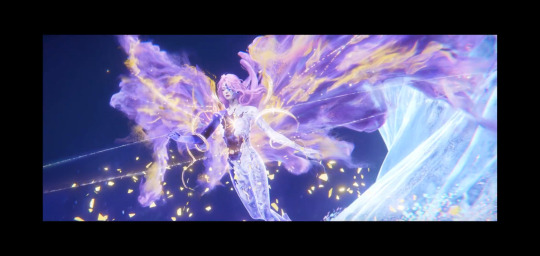
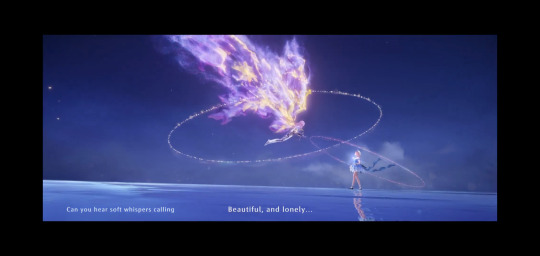
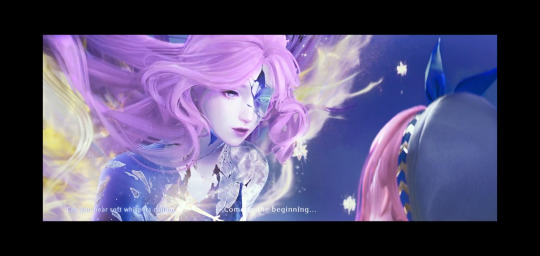
I do not care what name they're going to give this ethereal creature...
Because I'mma call her Infinite Nicole
#infinity nikki#nikkiverse#other acceptable names are Neo Sofia because of the starsea dress cutscene from Shining Nikki also makes the spirit look like Sofia#or if people want to consider this the fashionista soul of Nikki's mother I'm fine with that#I also just want to call her Nikki One and say that the Nikki from the first game ever became a interdimensional entity after being normal#It would make an extreme a nonsense because she looks so mature in comparison
26 notes
·
View notes
Text









#fridaynightfunkin#fridaynightfunkinfanart#friday night funkin#fnf#fnf fanart#fnf soft mod#fnf soft au#fnf neo#fnf b3#fnf tabi#fnf agoti#fnf ayana#fnf void#fnf kou#fnf entity#fnf nikusa#fnf whitty#fnf hex#fnf carol#fanart
301 notes
·
View notes
Text
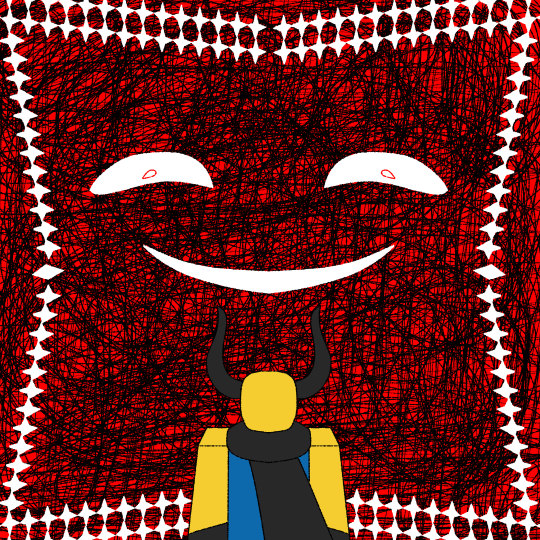
Pretend this caption says something funny
#lycorisicecream#oc#oc art#art#roblox#roblox oc#roblox art#the noob's name is neo btw#the entity doesn't have a name yet#but basically the entity just randomly appears in front of him to try to bully him#but it fails each time since neo is already horribly traumatized and numb#neo is the type of person to act really silly when he's completely dead inside#i mean he still is silly and he can feel positive emotions#but he's mostly just numb feeling#even when he's happy he'll still feel a bit numb#the entity is real btw#it's not his imagination#like other robloxians can see it too#it just tries to do it when only neo can see#but yeah#hope you enjoy
6 notes
·
View notes
Text
considering the bad end au is about a sadistic god(dess) black and red eyed version of sonic (self proclaimed at least) who has been torturing the sonic cast (both intentionally and bc she’s extremely bad at trying to be nice) does that make it a .exe fic
#neo metallix doesn’t run off a .exe file so I guess she can’t be a sonic.exe though#it’s very funny how similar it ended up to that whole weird genre though.#except neo metallix is kinda pathetic and it’s about the cycles of abuse instead of hyper realistic blood#to clarify I love sonic.exe i find the creepypasta delightfully so bad it’s good and fan works of it really cool#And the concept of a dangerous entity disguising itself as an innocent thing to prey on the vulnerable is a great concept!#as is the idea of being forced into a sadistic deranged game by someone more powerful than you with strange and horrible whims#both inherently have some really interesting (albeit DARK) themes to dig your teeth into and can be extremely scary if done right#I don’t think sonic.exe is a bad concept at all it’s popular for a reason this is a sonic.exe appreciation post#fuck the guy who made him tho. actual nonce
2 notes
·
View notes
Text
i wouldnt be like mad if undertale took place before deltarune cuz i trust tobyfox to have it make sense but with the evidence we have now it doesnt really work for me.
#like samtong neo looks lile mtt woag . almost like its because mtt made the drawing hes made out of.#woag the player provides prompts referencing undertale? almost like the player is explicitly an entity from outside the world of deltarune#who is assumed to know about ut. damn#also where the fuck did ut sams come from if not dr prior to uts events
3 notes
·
View notes
Text
somepeople still in passing call me void and i really really still quite enjoy the name
#despite it all im still a queer ass space entity#rambles#a girl has GOTS to find some space neos that really resonate with me. then its fucking over for you all
10 notes
·
View notes
Photo

Compilation of sillys :]
References under cut


youtube
youtube
#splatoon#splatoon art#splatoon comic#comic#videogame art#videogames#videogame comic#my art#artists on tumblr#neo agent 3#captian 3#shitpost#thats a lollypop in my inkling's mouth since they/i dont smoke#i love drawing siblings being siblings <3#*me and my brother playing baseball with a sword and a bomb*#Splat dare is a entity of chaos while callie is concentrated chaos#my brother is chill untill were put together and then we unlock dumbass mode :]#dare is the bain of orcas exsistence *cue more and more rediculious slapstick of dare trying to smuggle in their sword into tests*#neo squidbeak splatoon#callie and marie#splatoon callie#splatoon marie#Agent 1#Agent 3#vines#memes
7 notes
·
View notes
Text
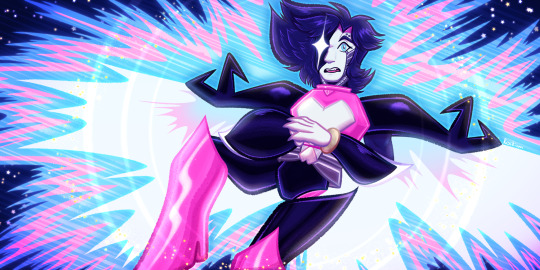
the star of the show!
@entityneo
#entity neo#napstablook#mettaton#mettaton neo#undertale#ah yes for today’s art shenanigans: how do i vibrant my colors hard enough to cast light mode#this is. a little off from the vision that hit on the train last friday! but Still Good#did not intend to try painting (sorta) but who needs art style consistency when i can pull this shit (/pos)#+bonus ramblings from me notes:#it’s all about the ✨symbolism✨. it’s all bright and all that fun shit because they’re the star.#except they’re not. except they are in a sense.#wings are vaguely shaped like that of a butterfly. which is extremely funny actually.#symbol of change and life and death. who else has all three as a theme?#they’re the star of the show! they’re not happy about it. all eyes on them and they’d probably hate that so much.#>:D
76 notes
·
View notes
Text


_you know your hair
_i know of it
_it's all blue!
_i change my hair every week-and-a-half, dude. get used to it.
#artists on tumblr#poetry#art#fake it till you make it#i said what i said#blue#blue hair#cyber y2k#neo y2k#y2k#y2k aesthetic#y2kcore#cybernetic entity#portrait#photography#old web#ramona flowers#scott pilgrim#scott pilgram vs the world#quotes#electro#emo#indie rock#2014 tumblr#female hysteria#femcel#musician#female#feminism
1 note
·
View note
Text

...Hmm. To think when she first showed up here she'd have felt a lot less conflicted about this vacancy.
#isola mini#Bwaaake ;~;#These two had so many good memories together#Like when Blake tried to kill Neo after she knocked Yang into the abyss#Or when Neo tried to kill Blake when she first showed up in their townhouse#Or when Neo pushed one of the most important people in Blake's life to unmake herself#And then was horrifically possessed by a malevolent entity who- like Blake- was also a cat#Such good times T_T#But fr now that she's more chill she would've been fine living with Blake- better than a bunch of strangers probably
0 notes
Text
Not related to Cookie Run (I run Identity Coining, for reference, if you've noticed a similar syntax) but I can't exactly say I, personally, haven't had a problem with anything due to... Avatars of the Archive.
I fully understand that it was originally a request, but there are still...a few things.
TMA Paganism does not have a leader at all, obviously, however the server I'm in (nearly been in it for a year, it's been around for 4-5 years now; founded near the end of TMA), has been a dominating space for TMA Paganism on Discord, and one of the members runs the TMA Pagans, which is just as old of a member of the community.
And again, they do not lead it, but I did extend an invitation on their behalf for discussion as they welcome other forms of PCP/neo-faiths as well for discussion (there's a dedicated channel), as they would've been happy to discuss their concerns and give advice as people who've been in the pop culture paganism community for a while!
Now, the main issue me and other TMA Pagans had:
The Name.
Avatars of the Archive imply members of the Magnus Insitute of London, which is reserved for Eye Avatars. Now, "The Magnus Archives," and "TMA" will inevitably be used to address the avatars and their entities to address them as determiners, but more vague terms can be used (Smirke, Lietner, and Jonah Magnus have been brutally pipe murdered peer-reviewed by the community, however, Dread Fears is a canon term people wouldn't mind being spun off of to describe their practice).
Plus, there are canon names for some of these TMA faiths. Imagine if someone started coining names for Christian sects that already had names—people would not be pleased. A lot of eldritch horror media has canon faiths that should be acknowledged before coining any religion imo, such as the Silt Verse.
Now, once again stemming from the name, Avatars of the Archive implies everyone who follows the faith is an avatar or describes themselves as such.
Summary 1: Name can be easily mistaken for things/is confusing. There are more canon-appropriate names + canon subfaiths that should've been included on the wiki page.
Absolutely not!
One of the older members of the community I mentioned typed up this lovely article regarding discernment between avatars, devotees, etc.
In simple, avatars are individuals who feed off others. Devotees, are, evidently devoted but are not necessarily Avatars. Then there's the Prey/normal people who the entities feed off of but do not Hunt for themselves. So forth.
"The Prey" may not be comfortable with the idea of being an Avatar. They are, often, not even comfortable acknowledging that they even are prey for an entity.
"The Avatars" might not even be comfortable grouping with others in a religion, which is why even with the canon faiths, there were canon divisions and loners and so forth.
Media likes this has very specific terms that should be respected. They also have phrases that should be respected.
To get my point across, you wouldn't address a TMA Pagan with "Ceasless Watcher, turn your gaze [...]" because it's the equivalent of a hex. You wouldn't address a Silt Verse Pagan with "The river rises" because it's the equivalent of a hex. So if you wouldn't misuse a hex, why should you misuse everything else?
Summary 2: Elaborating on some issues with the name, Avatar should not be used as a catchall address.
Then there's the fact it's a Religion.
I love the concept of Neoreligions, hell, I coined a couple of neoreligions on request, but evidently, I had some qualms when I felt an obligation to write an essay regarding the Dreadful Ones.
To start with unpacking this: Religion inherently implies there is a defined system for a faith. The person who started it believed in itself or started, intentionally or unintentionally, as a cult. I'm being brutally honest here.
Now, obviously, we don't want that. But it's nice to have a term to bring members of similar beliefs together.
The issue, again, lies inherently in religion.
However, this is the only available term at the moment besides the recently coined, Neomythic.
Now, ficto-religions do not have a defined system as they're just...chaos magic. More specifically, they center on the pop culture paganism branch of chaos magic. By trying to shape it into a religion, you're taking the freedom of paganism out of it, no matter how vague you try to make it.
This is inherently harmless, but plants seeds for harm.
Concerns are further discussed here.
Summary 3: Ficto-religion in general; taking paganism out of pcp and making it religion is harmful to practitioners. Requires putting the coiner at center (or at least, making it the "supreme" or "right" form of practice) which opens ways to fults/cults and discourse.
Regarding the Dreadful Ones—
I did not coin the term. The term was entirely paganism based, and references to the Magnus Archives (Dread Fears? Dreadful Ones?), and as result of tumbling across @redacted-coiner, it was requested that I make a flag. And I did, heavily linking to the original coining and other beliefs that wold fall under the umbrella.
Even though the flag was coined under "Dreadful Ones Ficto-Religion," it is not a religion but a general self-identifier for a path one might follow in their pagan journey.
Summary 4: More about Dreadful Ones; It's not a religion.
Just a word of advice.
I feel as if more people haven't commented with their opinions because you aren't coining with the right tags. If you tagged the original communities (please just look at the tags below as an example, I'm not going to write them out twice /tired), you would find a lot more people will comment. So far, you've only been tagging with liom and mogai which people usually don't look to for faith/paganism/religion/etc, and have not been reaching to the right people. The community cannot provide input if you stay in a dusty corner of Tumblr walled by your own terms. No offense, but the only reason I found you was due to following queer tags as a member of the LGBTQ community.
Summary 5: More tags/relevant tags = more input.
Hi being someone brought this up to my intention, did I do something wrong with Baked Faith (Cookie Run Ficto Religon) in the way I explained the term? To my memory I wasn't informed that anything was wrong but if I did please inform me? I did expand on the subgroups within it's wiki page but I just want to make sure something isn't wrong.
If I don't do something right with my terms I do apologize. But if possible please inform me directly if something is wrong, I will not always see comments about things so having a direct line of comment would be helpful.
#pop culture paganism#pop culture magic#pop culture witchcraft#tma pcp#pcp#pc paganism#pagan#paganism#pagan witch#paganblr#witch#witchcraft#witchblr#witches#pagan community#witch community#neo religion#neo paganism#ficto religion#fictoreligion#neomythic#avatars of the archive#I am an Avatar#But I do feel like it should be acknowledged#And as someone who doesn't view their relationships with the entities as religious/devotional#this whole thing makes me uncomfortable#I do appreciate the idetifier#A lot of people appreciate the identifier#But I'm saying what needs to be said#I also contacted the other pcp pagans as I said I would
25 notes
·
View notes
Text
The majority of censorship is self-censorship

I'm on tour with my new novel The Bezzle! Catch me TONIGHT in SAN DIEGO (Feb 22, Mysterious Galaxy). After that, it's LA (Saturday night, with Adam Conover), Seattle (Monday, with Neal Stephenson), then Portland, Phoenix and more!

I know a lot of polymaths, but Ada Palmer takes the cake: brilliant science fiction writer, brilliant historian, brilliant librettist, brilliant singer, and then some:
https://pluralistic.net/2022/02/10/monopoly-begets-monopoly/#terra-ignota
Palmer is a friend and a colleague. In 2018, she, Adrian Johns and I collaborated on "Censorship, Information Control, & Information Revolutions from Printing Press to Internet," a series of grad seminars at the U Chicago History department (where Ada is a tenured prof, specializing in the Inquisition and Renaissance forbidden knowledge):
https://ifk.uchicago.edu/research/faculty-fellow-projects/censorship-information-control-information-revolutions-from-printing-press/
The project had its origins in a party game that Ada and I used to play at SF conventions: Ada would describe a way that the Inquisitions' censors attacked the printing press, and I'd find an extremely parallel maneuver from governments, the entertainment industry or other entities from the much more recent history of internet censorship battles.
With the seminars, we took it to the next level. Each 3h long session featured a roster of speakers from many disciplines, explaining everything from how encryption works to how white nationalists who were radicalized in Vietnam formed an armored-car robbery gang to finance modems and Apple ][+s to link up neo-Nazis across the USA.
We borrowed the structure of these sessions from science fiction conventions, home to a very specific kind of panel that doesn't always work, but when it does, it's fantastic. It was a natural choice: after all, Ada and I know each other through science fiction.
Even if you're not an sf person, you've probably heard of the Hugo Awards, the most prestigious awards in the field, voted on each year by attendees of the annual World Science Fiction Convention (Worldcon). And even if you're not an sf fan, you might have heard about a scandal involving the Hugo Awards, which were held last year in China, a first:
https://www.nbcnews.com/news/world/science-fiction-authors-excluded-hugo-awards-china-rcna139134
A little background: each year's Worldcon is run by a committee of volunteers. These volunteers put together bids to host the Worldcon, and canvass Worldcon attendees to vote in favor of their bid. For many years, a group of Chinese fans attempted to field a successful bid to host a Worldcon, and, eventually, they won.
At the time, there were many concerns: about traveling to a country with a poor human rights record and a reputation for censorship, and about the logistics of customary Worldcon attendees getting visas. During this debate, many international fans pointed to the poor human rights record in the USA (which has hosted the vast majority of Worldcons since their inception), and the absolute ghastly rigmarole the US government subjects many foreign visitors to when they seek visas to come to the US for conventions.
Whatever side of this debate you came down on, it couldn't be denied that the Chinese Worldcon rang a lot of alarm-bells. Communications were spotty, and then the con was unceremoniously rescheduled for months after the original scheduled date, without any good explanation. Rumors swirled of Chinese petty officials muscling their way into the con's administration.
But the real alarm bells started clanging after the Hugo Award ceremony. Normally, after the Hugos are given out, attendees are given paper handouts tallying the nominations and votes, and those numbers are also simultaneously published online. Technically, the Hugo committee has a grace period of some weeks before this data must be published, but at every Worldcon I've attended over the past 30+ years, I left the Hugos with a data-sheet in my hand.
Then, in early December, at the very last moment, the Hugo committee released its data – and all hell broke loose. Numerous, acclaimed works had been unilaterally "disqualified" from the ballot. Many of these were written by writers from the Chinese diaspora, but some works – like an episode of Neil Gaiman's Sandman – were seemingly unconnected to any national considerations.
Readers and writers erupted in outrage, demanding to know what had happened. The Hugo administrators – Americans and Canadians who'd volunteered in those roles for many years and were widely viewed as being members in good standing of the community – were either silent or responded with rude and insulting remarks. One thing they didn't do was explain themselves.
The absence of facts left a void that rumors and speculation rushed in to fill. Stories of Chinese official censorship swirled online, and along with them, a kind of I-told-you-so: China should never have been home to a Worldcon, the country's authoritarian national politics are fundamentally incompatible with a literary festival.
As the outrage mounted and the scandal breached from the confines of science fiction fans and writers to the wider world, more details kept emerging. A damning set of internal leaks revealed that it was those long-serving American and Canadian volunteers who decided to censor the ballot. They did so out of a vague sense that the Chinese state would visit some unspecified sanction on the con if politically unpalatable works appeared on the Hugo ballot. Incredibly, they even compiled clumsy dossiers on nominees, disqualifying one nominee out of a mistaken belief that he had once visited Tibet (it was actually Nepal).
There's no evidence that the Chinese state asked these people to do this. Likewise, it wasn't pressure from the Chinese state that caused them to throw out hundreds of ballots cast by Chinese fans, whom they believed were voting for a "slate" of works (it's not clear if this is the case, but slate voting is permitted under Hugo rules).
All this has raised many questions about the future of the Hugo Awards, and the status of the awards that were given in China. There's widespread concern that Chinese fans involved with the con may face state retaliation due to the negative press that these shenanigans stirred up.
But there's also a lot of questions about censorship, and the nature of both state and private censorship, and the relationship between the two. These are questions that Ada is extremely well-poised to answer; indeed, they're the subject of her book-in-progress, entitled Why We Censor: from the Inquisition to the Internet.
In a magisterial essay for Reactor, Palmer stakes out her central thesis: "The majority of censorship is self-censorship, but the majority of self-censorship is intentionally cultivated by an outside power":
https://reactormag.com/tools-for-thinking-about-censorship/
States – even very powerful states – that wish to censor lack the resources to accomplish totalizing censorship of the sort depicted in Nineteen Eighty-Four. They can't go from house to house, searching every nook and cranny for copies of forbidden literature. The only way to kill an idea is to stop people from expressing it in the first place. Convincing people to censor themselves is, "dollar for dollar and man-hour for man-hour, much cheaper and more impactful than anything else a censorious regime can do."
Ada invokes examples modern and ancient, including from her own area of specialty, the Inquisition and its treatment of Gailileo. The Inquistions didn't set out to silence Galileo. If that had been its objective, it could have just assassinated him. This was cheap, easy and reliable! Instead, the Inquisition persecuted Galileo, in a very high-profile manner, making him and his ideas far more famous.
But this isn't some early example of Inquisitorial Streisand Effect. The point of persecuting Galileo was to convince Descartes to self-censor, which he did. He took his manuscript back from the publisher and cut the sections the Inquisition was likely to find offensive. It wasn't just Descartes: "thousands of other major thinkers of the time wrote differently, spoke differently, chose different projects, and passed different ideas on to the next century because they self-censored after the Galileo trial."
This is direct self-censorship, where people are frightened into silencing themselves. But there's another form of censorship, which Ada calls "middlemen censorship." That's when someone other than the government censors a work because they fear what the government would do if they didn't. Think of Scholastic's cowardly decision to pull inclusive, LGBTQ books out of its book fair selections even though no one had ordered them to do so:
https://www.nytimes.com/2023/05/06/books/scholastic-book-racism-maggie-tokuda-hall.html
This is a form of censorship outsourcing, and it "multiplies the manpower of a censorship system by the number of individuals within its power." The censoring body doesn't need to hire people to search everyone's houses for offensive books – it can frighten editors, publishers, distributors, booksellers and librarians into suppressing the books in the first place.
This outsourcing blurs the line between state and private surveillance. Think about comics. After a series of high-profile Congressional hearings about the supposed danger of comics to impressionable young minds, the comics industry undertook a regime of self-censorship, through which the private Comics Code Authority would vet comings for "dangerous" content before allowing its seal of approval to appear on the comics' covers. Distributors and retailers refused to carry books without a CCA stamp, so publishers refused to publish books unless they could get a CCA stamp.
The CCA was unaccountable, capricious – and racist. By the 60s and 70s, it became clear that comic about Black characters were subjected to much tighter scrutiny than comics featuring white heroes. The CCA would reject "a drop of sweat on the forehead of a Black astronaut as 'too graphic' since it 'could be mistaken for blood.'" Every comic that got sent back by the CCA meant long, brutal reworkings by writers and illustrators to get them past the censors.
The US government never censored heroes like Black Panther, but the chain of events that created the CCA "middleman censors" made sure that Black Panther appeared in far fewer comics starring Marvel's most prominent Black character. An analysis of censorship that tries to draw a line between private and public censorship would say that the government played no role in Black Panther's banishment to obscurity – but without Congressional action, Black Panther would never have faced censorship.
This is why attempts to cleanly divide public and private censorship always break down. Many people will tell you that when Twitter or Facebook blocks content they disagree with, that's not censorship, since censorship is government action, and these are private actors. What they mean is that Twitter and Facebook censorship doesn't violate the First Amendment, but it's perfectly possible to infringe on free speech without violating the US Constitution. What's more, if the government fails to prevent monopolization of our speech forums – like social media – and also declines to offer its own public speech forums that are bound to respect the First Amendment, we can end up with government choices that produce an environment in which some ideas are suppressed wherever they might find an audience – all without violating the Constitution:
https://locusmag.com/2020/01/cory-doctorow-inaction-is-a-form-of-action/
The great censorious regimes of the past – the USSR, the Inquisition – left behind vast troves of bureaucratic records, and these records are full of complaints about the censors' lack of resources. They didn't have the manpower, the office space, the money or the power to erase the ideas they were ordered to suppress. As Ada notes, "In the period that Spain’s Inquisition was wildly out of Rome’s control, the Roman Inquisition even printed manuals to guide its Inquisitors on how to bluff their way through pretending they were on top of what Spain was doing!"
Censors have always done – and still do – their work not by wielding power, but by projecting it. Even the most powerful state actors are not powerful enough to truly censor, in the sense of confiscating every work expressing an idea and punishing everyone who creates such a work. Instead, when they rely on self-censorship, both by individuals and by intermediaries. When censors act to block one work and not another, or when they punish one transgressor while another is free to speak, it's tempting to think that they are following some arcane ruleset that defines when enforcement is strict and when it's weak. But the truth is, they censor erratically because they are too weak to censor comprehensively.
Spectacular acts of censorship and punishment are a performance, "to change the way people act and think." Censors "seek out actions that can cause the maximum number of people to notice and feel their presence, with a minimum of expense and manpower."
The censor can only succeed by convincing us to do their work for them. That's why drawing a line between state censorship and private censorship is such a misleading exercise. Censorship is, and always has been, a public-private partnership.

If you'd like an essay-formatted version of this post to read or share, here's a link to it on pluralistic.net, my surveillance-free, ad-free, tracker-free blog:
https://pluralistic.net/2024/02/22/self-censorship/#hugos
#pluralistic#ada palmer#worldcon#hugos#china#science fiction#fanac#publishing#censorship#systems of information control during information revolutions#scholarship
2K notes
·
View notes
Note
That friend on another site that I told you about a while ago said that the feminists who first started worshiping Lilith did blame Western religious systems in general for sexism, but they didn't have any ill will towards Jews specifically. Are you willing to buy that?
I am very willing to say that the first 20th century feminists to bring Lilith into the conversation were not being antisemitic, because those feminists were Jewish. Their work is confronting, nuanced, and interesting. I don't always agree with their conclusions, but I certainly wouldn't call this examination of the place of Lilith in Jewish thought antisemitic or unwarrented.
However, almost immediately, once Gentile feminists (and specifically Gentile feminists of a Christian cultural background) got their hands on Lilith, it was a different story, and one that requires an examination of what is meant by "Western religions".
"Western religions" are contrasted with "Eastern religions", or more tellingly "Eastern Spirituality", a framing which posits two diametrically opposed worldviews and approaches to spirituality. This framing by its nature flattens such disparate traditions as Zoroastrianism and Shintoism, and applies what might be termed an orientalizing lens. It is, in other words, a bad model which expresses the biases and assumptions of its proponants, and leads to misunderstanding and bad scholarship, and also kind of racist. It was also a popular model in the mid 20th century.
It's important to note here that feminist spirituality and neo-Goddess worship were becoming a thing at exactly the time when a Western curiosity about "Eastern Spirituality" was hitting the mainstream. And because of a complicated stew of historical and cultural factors, almost all of these Western spiritual seekers approached "Eastern Spirituality" not as disparate living traditions, which are part of their own cultural contexts, and which are the traditions and worldviews of actual societies, which, as human societies, are far from perfect examples of enlightenment, but instead approached "Eastern Spirituality" as a single entity which could be stripped of context and turned into something to be consumed by a western audience, and also as the antidote to a spiritually bankrupt western capitalistic society. These Eastern teachings are just soooo enlightened, maaaan. This very much informed the framework of Western vs Eastern religions.
As for Western religions, this is a category I often see expressed in slightly different ways. I've neen this grouping called "Western religions" or even "Western religion", or Abrahamic religions (by which the speaker typically means the Abrahamic religions they have heard of, given that most don't seem to realize that there are in fact quite a few Abrahamic religions, not just Islam, Christianity, and Judaism) or sometimes it's monotheism or the monotheistic religions. These are all the same group, but the rhetorical focus is slightly different. Western religions are contrasted with Eastern religions or sometimes "non-Western religions,", monotheism with polytheism, and the Abrahamic religions with everything else. And a most cases, which goes up to nearly all cases where a value judgment is being made, what the person doing the grouping really means is "Christianity and the religions I assume are basically just Christianity." It's a framework that makes a lot of incorrect assumptions about what Judaism is, and assumes that anything the speaker objects to in Christianity is present in, and ultimately comes from Judaism. It's also a framing that by contrast assumes that these things which are bad about "Western religions" or "monotheism" are not broadly present in other religions, and are unique to Judaism and its descendents.
That last consideration is extremely important, because it's hard to argue that "Western religions" are responsible for x bad thing, when that bad thing is far from exculsively found in "Western religions" Most polytheistic traditions currently and historically have practiced some form of patriarchy. Worship of powerful goddesses does not seem to make these societies less oppressive for human women. Another popular argument I see is that monotheism brought religious intolerance into the world, but again, the idea that polytheistic societies are inherently religiously tolerant, and we have no evidence of religious persecution until monotheism came on the scene, is a myth. It's also with seeing these other terms for the same goup, and the comparisons people are using this grouping to make, that it becomes possible to understand why Hellenistic or Norse paganism, for example, are not part of the umbrella of "Western religions."
It's important to note here that it's a standard part of the Christian intellectual tradition that goes back almost to the creation of Christianity, that all the good parts of Christianity are from Jesus, and are "True Christianity" and all the bad parts are Jewish things that were insufficiently purged. Judaism-and-the-Jews-as-responsible-for-all-of-Christianity's-flaws is an old antisemitic trope, and one which has gained purchase among critics of Christianity globally.
The 20th century feminists who pioneered so-called feminist spirituality and neo-pagan Goddess worship latched onto an anthropological theory popular in the 19th century, that before the rise of patriarchy, societies went through a matriarchal, fertility, focused goddess worshipping phase. It's really really important to note here that by the time 20th century feminists got their hands on this idea, it had been already widely discredited. Anthropologists and archeologists no longer took it seriously, because after a certain point, it became really obvious that it did not fit the evidence.
Also in its original formulation it was really racist, as almost all anthropological theories popular in the 19th century were. See, the original idea was that societies progressed through stages, and that fertility focused matriarchal goddess worship was an early primitive phase, that societies passed through on their way to "higher civilization". The best and most civilized societies were (obviously) 19th century Western European ones, so societies closest to that were further along and more advanced, while societies further from that could be grouped according to which "stage" they reached.
20th feminists took this debunked, discredited formulation and flipped it on its head. Instead of matriarchal fertility-focused goddess worship being a phase societies passed through on their way to higher (patriarchal) forms of civilization, it was actually the natural state of humanity that we had fallen from, and needed to reclaim. It became a feminist Eden.
And who was the serpent in this feminist Eden, offering the fruit of the tree of patriarchy? Why, it was those first monotheists, the Ur-Abrahamic* religion, Judaism.
It's likely that a lot of the people reading this saying, hey, you are going way too far and reading way too much into this. Christianity is included in "Western religions", and nobody is being singled out, and that's a whole lot of well-meaning and progressive people that you are accusing of deliberate antisemitism. To which I say, I'm not actually accusing anyone of deliberate antisemitism here. I am saying that in a society where antisemitic tropes are a bulwark of the intellectual tradition, it's easy to accidentally and unconciously incorporate those tropes and narratives into any new, or not so new, ideas. As for whether Judaism was singled out, the fact that all these gentile feminists picked Lilith, a figure not present in Christianity, or Islam, but only in Judaism, shows who, consciously or not, they were holding responsible for patriarchy in "Western religions".
*According to the Torah, Abraham came from the city of Ur. This is a joke. I am very funny. Please take this opportunity to chuckle in a sensible and dignified manner.
#and ultimately this is all less important to me than the fact that current Lilith worshippers are in my experience virulently antisemitic#jewish#lilith#a s fischer original#there are no stupid questions
154 notes
·
View notes
Text
Clownstrike is NOTHING like Y2K
Y2K was programmers kicking a problem to the next generation who, over a long time and with a ton of effort, more or less fixed it without too many major incidents
What happened today is basically the complete opposite in every single way possible: ONE entity made ONE completely unnecessary fuck-up (back in the 70s and 80s the memory saved from using two digits for the year MEANT SOMETHING) and MANY MAJOR INCIDENTS DID HAPPEN
Also: Y2K was in no way limited to any particular operating system. Hell, Fatal Fury on the NEO-GEO has a Y2K error!
491 notes
·
View notes